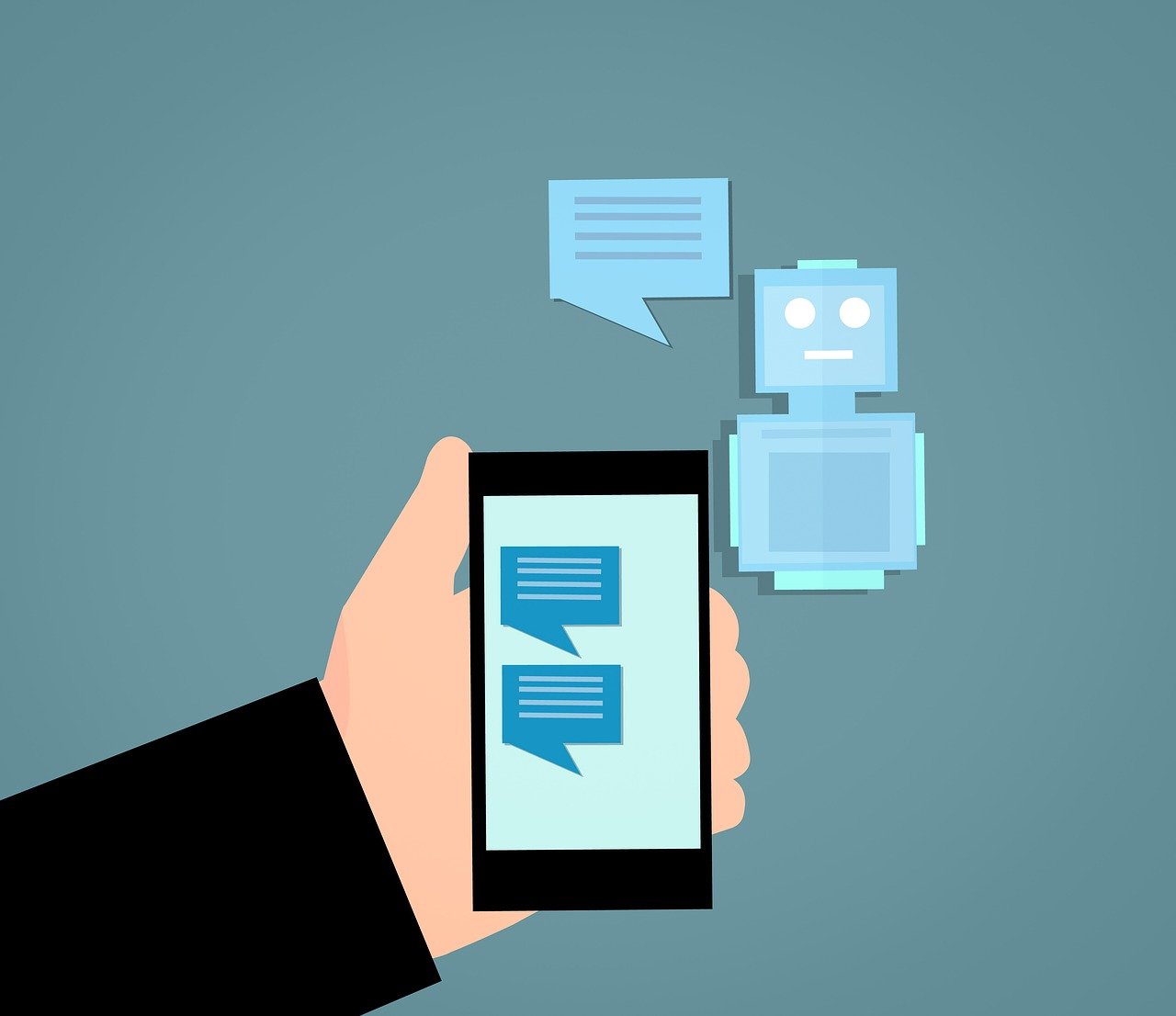AI in the Workplace: Preparing for the Workforce of Tomorrow

August 21, 2023
In an era where technological advancements are shaping the world at an unprecedented pace, Artificial Intelligence (AI) emerges as a transformative force, poised to revolutionize the way we work. The integration of AI into various sectors has already begun, and its impact on the workplace is profound. This article delves into the multifaceted realm of AI’s influence on the workforce, addressing its rise, challenges, opportunities, and the strategies needed to navigate this transformative landscape.
How AI can Change the Business World
The Rise of AI in the Workplace
Artificial Intelligence’s integration into the workplace has ushered in a new era of productivity and innovation. As businesses recognize the potential for AI to revolutionize operations, they are harnessing its capabilities to streamline processes, optimize decision-making, and unlock previously untapped insights.
Automation Redefined
At the heart of AI’s impact lies automation—an advancement that’s redefining the nature of work. Repetitive, routine tasks that once consumed significant employee time are now being efficiently executed by AI systems. This shift is reshaping job roles, allowing employees to focus on tasks that require uniquely human qualities like empathy, creativity, and strategic thinking.
Automation extends across industries. In manufacturing, AI-powered robots and systems are assembling products, conducting quality checks, and enhancing production speed. In customer service, chatbots are providing instant support, addressing queries, and resolving issues round the clock. This new level of responsiveness elevates customer satisfaction while simultaneously reducing the strain on human customer service representatives.
Augmented Decision-Making
AI’s data processing capabilities are supercharging decision-making. Businesses are leveraging AI algorithms to analyze vast datasets, extract meaningful insights, and make well-informed choices. This is particularly valuable in fields where timely and accurate decisions are paramount.
For instance, financial institutions are using AI, of which Analytics is the most famous, to analyze market trends, assess risk, and predict investment outcomes. In healthcare, AI is employed to interpret medical images, aiding in disease diagnosis. By augmenting human expertise with AI insights, industries are advancing their ability to make informed decisions swiftly, minimizing risks and capitalizing on opportunities.
Empowering Creativity
AI’s influence extends beyond automation and analytics; it’s also nurturing creativity. Advanced AI algorithms are assisting in creative tasks, generating ideas, and aiding in the design process. For graphic designers, AI-powered tools offer suggestions, generate layouts, and even propose color palettes based on extensive design knowledge.
In content creation, AI is transforming the way marketing campaigns are conceptualized. AI-driven analysis of customer preferences helps marketers tailor content to resonate with target audiences effectively. This fusion of creativity and data-driven insights is pushing the boundaries of innovation, inspiring professionals to explore new frontiers of expression.
Enabling Predictive Analysis
Predictive analytics is another facet of AI that’s reshaping the workplace. By analyzing historical data patterns, AI algorithms can anticipate future trends, helping businesses make informed strategies. Retailers, for instance, use AI to forecast consumer preferences, thereby optimizing inventory management and minimizing stockouts.
Supply chain optimization is yet another area where predictive analysis shines. AI algorithms process data from various sources—such as production rates, transportation schedules, and market demands—to optimize supply chain operations. This ensures that businesses can meet customer demands efficiently, minimize wastage, and optimize costs.
A Collaborative Future
The integration of AI does not signify a future of machines replacing humans, but rather a future of collaboration. AI excels at tasks that require processing and analyzing vast amounts of data, while humans excel in creativity, emotional intelligence, and critical thinking. By embracing this collaboration, businesses can achieve unprecedented levels of efficiency, innovation, and growth.
Navigating the Challenges
As AI’s influence expands, it brings forth a set of challenges that require thoughtful consideration. One of the most prevalent concerns is job displacement. While AI can undoubtedly replace certain tasks, the overarching aim is not to replace human workers, but to augment their capabilities. Jobs that require emotional intelligence, creative thinking, complex problem-solving, and interpersonal skills will remain predominantly human domains.
To address the challenge of job displacement, businesses must proactively invest in upskilling and reskilling programs. These initiatives empower employees to adapt to the evolving job landscape, ensuring their roles remain relevant and valuable. This approach not only safeguards the workforce but also fosters a culture of continuous learning that benefits both individuals and organizations.
Ethical considerations also loom large in the AI landscape. Data privacy and transparency are essential to building trust in AI-powered systems. Businesses must be diligent in handling data responsibly and ensuring that individuals’ personal information is protected. Furthermore, the potential for bias in AI algorithms requires ongoing vigilance. Diverse and inclusive data sets, as well as regular algorithm audits, are crucial to prevent discrimination and ensure fairness.
Embracing the Opportunities
Amidst the challenges, the integration of AI offers a myriad of opportunities to reshape the workplace positively. Foremost among these is the potential to elevate human potential. As AI takes over mundane and routine tasks, employees are liberated to engage in higher-order thinking, innovation, and relationship-building. This shift not only enhances job satisfaction but also positions the workforce to focus on the uniquely human qualities that drive progress.
AI’s predictive capabilities also empower businesses to make data-driven decisions with unprecedented accuracy and speed. This is particularly relevant in industries that require quick adaptations, such as finance and supply chain management. Through AI-powered insights, companies can forecast market trends, anticipate customer preferences, and align their strategies accordingly.
What are the Benefits of AI for Human Beings?
Strategies for Preparing the Workforce of Tomorrow
The transformative potential of AI in the workplace demands a comprehensive approach to ensure that businesses and employees are well-prepared for the changing landscape. Here are further details on the strategies necessary to navigate this transition effectively.
Invest in Education and Training
The rapid evolution of AI necessitates a workforce that is adaptable and continuously learning. Businesses should allocate resources to provide comprehensive education and training programs. These initiatives can include online courses, workshops, and certifications that help employees develop the skills required to collaborate with AI systems effectively.
Incorporating AI-related education into onboarding processes can introduce new hires to the technological ecosystem from the outset. Additionally, creating internal AI centers of excellence or innovation labs can foster a culture of curiosity and exploration, enabling employees to experiment with AI tools and develop novel solutions.
Ethical AI Development
Ensuring the ethical use of AI is paramount. Companies should establish dedicated teams or roles responsible for AI ethics and governance. These teams can work in collaboration with data scientists and developers to identify potential biases, assess the ethical implications of AI decisions, and develop strategies to mitigate any adverse effects.
Regular audits and reviews of AI algorithms are crucial to identify and address biases that may emerge over time. Furthermore, involving diverse teams in AI development can help reduce bias and enhance the inclusivity of AI systems.
Data Privacy Assurance
As AI relies on data to function effectively, data privacy becomes a central concern. Businesses must adopt robust data privacy protocols that comply with relevant regulations such as GDPR, CCPA, or other regional data protection laws. Transparency is key. Employees should be informed about the types of data collected, how it’s used, and the safeguards in place to protect their privacy.
Implementing stringent data encryption, access controls, and regular security audits can help fortify data privacy. Clear communication regarding the ethical use of data reassures employees that their personal information is treated with utmost care.
Human-AI Collaboration
A successful AI implementation hinges on human-AI collaboration. To foster a culture of collaboration, it’s essential to establish clear guidelines on how AI systems should be integrated into daily workflows. Employees should be encouraged to view AI as a valuable tool that complements their skill set, rather than a competitor.
Cross-functional teams that include AI specialists and domain experts can work together to identify use cases where AI can enhance human capabilities. By involving employees in AI-related decisions and encouraging their input, businesses can ensure that AI technologies align with organizational goals and employee needs.
Change Management and Communication
The introduction of AI can evoke feelings of uncertainty and resistance among employees. Effective change management involves transparent communication about the reasons for adopting AI, its potential benefits, and how it will impact various job roles. Employees should have ample opportunities to ask questions, voice concerns, and receive reassurance.
Pilot programs can begin to demonstrate the benefits of AI on a smaller scale before full implementation. Regular town hall meetings, workshops, and open forums can provide platforms for ongoing discussions about the evolving role of AI in the workplace.
Embracing the AI-Enabled Future
The integration of AI into the workplace signifies a transformative shift that requires a holistic and proactive approach. By investing in education, prioritizing ethical considerations, safeguarding data privacy, promoting collaboration, and implementing effective change management, businesses can forge a path toward a workforce that thrives in collaboration with AI technologies.
AI-powered Chatbots are like your Personal Assistant
Shaping a Collaborative Future
As AI becomes an indispensable partner in the workplace, it is crucial to view it not as a replacement for human effort, but as a catalyst for growth and innovation. By embracing these strategies and fostering a culture of adaptability, businesses can ensure that the workforce of tomorrow not only prepares for the AI-driven era but can excel and contribute uniquely human qualities to the evolving professional landscape.
The impact of AI is undeniable. The journey toward a technologically augmented workforce is not without its challenges, but it also presents immense opportunities. Embracing AI means embracing change—an evolution where humans and machines collaborate to achieve new heights of efficiency, innovation, and progress. By investing in education, ethical AI, data privacy, collaboration, and change management, businesses can lay the foundation for a workforce prepared to thrive in the AI-powered landscape of tomorrow. The future beckons, and with strategic preparation, we can navigate it hand in hand with the transformative power of AI.








